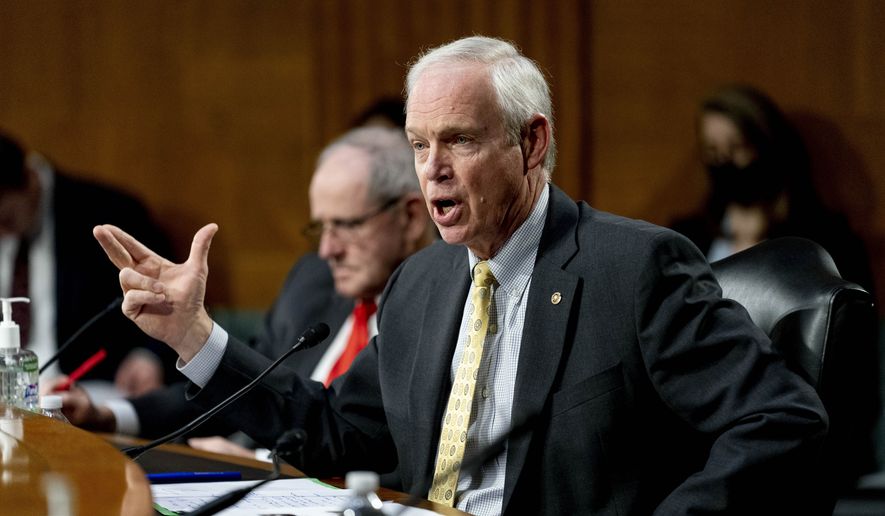Two Senate Republicans want Facebook to explain whether the FBI discussed Hunter Biden’s laptop computer, his business dealings and “Russian disinformation” with the social media platform during the 2020 campaign, citing a revealing podcast appearance by CEO Mark Zuckerberg.
Sens. Charles E. Grassley of Iowa and Ron Johnson of Wisconsin told Mr. Zuckerberg, who leads Facebook parent company Meta, that his comments on Joe Rogan’s podcast made them wonder if the social media platform was pressured to suppress information about President Biden’s son.
“You appeared to indicate that as a result of the FBI’s warning, Facebook eventually took steps to censor news articles about Hunter Biden’s laptop. Specifically, you said that ‘distribution’ of those articles on Facebook was decreased and explained that ‘the ranking and newsfeed was a little bit less. So fewer people saw it than would have otherwise,’” the senators wrote to Mr. Zuckerberg. “Your revelation that Facebook took steps to censor information about Hunter Biden on its platform based on the FBI’s guidance raises even more questions about the FBI’s actions regarding Hunter Biden’s laptop.”
Facebook responded in a series of tweets that said “nothing about the Hunter Biden laptop story is new” and that they took general steps to avoid foreign interference without singling out the laptop reporting.
“In the lead-up to the 2020 election, the FBI shared general guidance about the threat of foreign interference and potential hack and leak operations, not about Hunter Biden or his laptop,” the Meta Newsroom tweeted in recent days.
The company pointed to information it provided to the Senate Judiciary Committee in December 2020, in which it said the FBI warned tech companies to be on the alert for hack-and-leak operations by foreign actors before the election.
“Given concerns raised by the FBI and others, we took steps consistent with our policies to slow the spread of suspicious content and provide fact-checkers the opportunity to assess it. However, at no point did we take any action to block or remove the content from the platform. People could — and did — read and share the Post’s reporting while we had this temporary demotion in place,” the company said at the time.
The New York Post in October 2020 reported that Hunter Biden abandoned a laptop at a computer-repair shop in Delaware. Its hard drive contained emails, text messages, photos and other documents detailing how Hunter Biden used his political connections to boost his overseas business dealings.
It was initially dismissed by the Bidens and mainstream media as Russian disinformation. But sources familiar with the investigation confirmed the authenticity this year of the laptop, which was a source of contention during the 2020 presidential election.
Since then, GOP lawmakers have scrutinized the contents of the laptop and want to know if federal law enforcement intentionally downplayed its importance. They are pressing FBI brass to explain reports that whistleblowers instructed employees not to look at the laptop immediately after the FBI obtained it.
Efforts to probe the president’s son and business dealings will likely ramp up if Republicans retake control of the House and key committees after the mid-term elections.
In the meantime, Mr. Grassley and Mr. Johnson want the FBI and Facebook to divulge what they know.
“The American people deserve to know whether the FBI used Facebook as part of their alleged plan to discredit information about Hunter Biden,” the senators wrote. “If so, Congress and the American people require clarity with respect to the extent the FBI communicated with Facebook during the 2020 election about Hunter Biden-related information.”
• Tom Howell Jr. can be reached at thowell@washingtontimes.com.




Please read our comment policy before commenting.